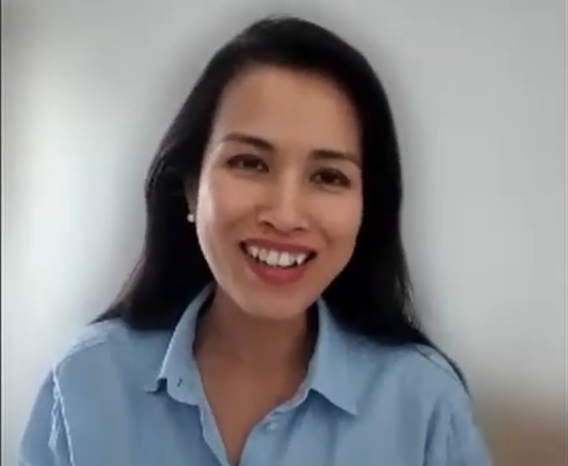
Melinda Tun is an Australian lawyer of Burmese background, now working for a multilateral organisation. Melinda migrated to Australia at the age of 12, and went to school and college in Sydney. Even though she left Myanmar as a child, the country remained close to her heart. She always wanted to help the country achieve, what she says, “its fullest potential”.
In 2007 she participated in DTP’s first human rights training program for diaspora communities from Burma. She says that training played a vital role for the Myanmar community in Sydney to actively advocate for democracy in Australia and internationally.
In 2007, during the Saffron Revolution, the Myanmar diaspora in Australia were campaigning to raise awareness about the situation on the ground in Myanmar where peaceful protestors were being violently suppressed. Around the same time the DTP organised a training program on human rights advocacy for the Myanmar activists.
With the knowledge gathered from that training, Melinda said, the participants built human rights advocacy community networks and learnt first hand the importance of establishing strong community organisations to support the advocacy. The training helped them build key skills in media and lobbying, and they initiated letter writing campaigns to reach out to the local politicians to pressure the Junta in Myanmar for democratic reform. To this day, Melinda is still in touch with the participants of that training program.
“DTP made us realise that even though we all live abroad, we have certain leverage, and we should use it thoughtfully and in an organised way to help push for change in Myanmar using international mechanisms.”
Under growing international pressure, in 2011 the military-appointed government began a series of reform programs for a democratic transition. Aung San Suu Kyi and her party came into power through a national election in 2015 which was considered to be the country’s first free and fair election since the 1960s.
In 2013, Melinda decided to go back to Myanmar to assist in efforts to prepare the country for reintegrating into the global economy.
“In Australia, I ran into a few visiting government delegates from Myanmar and they told me about the need for qualified lawyers to provide input on the economic law reform program and rebuild the rule of law in Myanmar. As a corporate lawyer by training, I felt I could use my skills to help.”
Back in Myanmar, she helped the government to formulate commercial law reforms which involved policy dialogue and consultations with government ministries and stakeholder groups inside Myanmar.
“I am an Australian and a Burmese. While growing up in Australia in a big Burmese family, I realised how lucky we are here, but in the back of my mind, Burma and its people always lingered. I grew up with that sense of unfulfilled dreams hanging over our heads that we had to leave the country where we thought we were going to spend the rest of our lives and my parents and grandparents could not contribute in building the country they love.”
Unfortunately, after only five years under a democratic civilian government, Myanmar is now back under military rule following the 2021 military coup. The need for international pressure for democratic reform in the country is pressing and critical. Melinda is now on the Steering Committee for DTP’s current Myanmar Diaspora Human Rights Advocacy Program – responding to the human rights and humanitarian emergency following the military coup in February 2021 – and the reimprisonment of Aung San Suu Kyi and senior members of the democratic government and the National League for Democracy.
Melinda believes that similar to the programs in 2007 and 2008, DTP can play a substantial role by training Myanmar’s new generation of democracy activists and arming them with human rights advocacy strategies and tools to help the country return to its path to democracy.
DTP acknowledges the traditional custodians of the land on which we work, the Bedegal people of the Eora Nation. We recognise their lands were never ceded, and we acknowledge their struggles for recognition and rights and pay our respects to the Elders – past, present – and the youth who are working towards a brighter tomorrow. This continent always was and always will be Aboriginal land.
Aboriginal and Torres Strait Islander peoples should be aware that this website contains images or names of people who have passed away.
DTP acknowledges the traditional custodians of the land on which we work, the Bedegal people of the Eora Nation. We recognise their lands were never ceded, and we acknowledge their struggles for recognition and rights and pay our respects to the Elders – past, present – and the youth who are working towards a brighter tomorrow. This continent always was and always will be Aboriginal land.
Aboriginal and Torres Strait Islander peoples should be aware that this website contains images or names of people who have passed away.
Privacy Policy | Terms of Use | Disclaimer | Policies
© 2022 Diplomacy Training Program | ABN 31 003 925 148 | Web Design by Studio Clvr